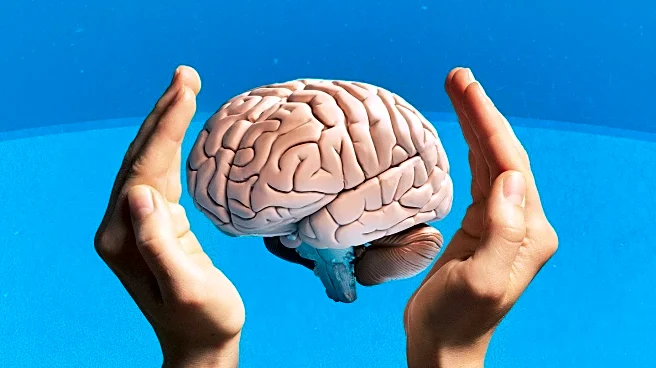What's Happening?
Creatine, traditionally known for its muscle-boosting properties, is being explored for its potential benefits in improving brain function. Originally popular among athletes for enhancing performance, creatine is now being considered by a broader demographic, including women experiencing perimenopausal symptoms. Dr. Henry Chung from the University of Essex notes the shift from elite sports to mainstream use, with creatine being stored in muscles to aid energy production. Recent studies suggest creatine may help with short-term memory, mood, and focus, particularly in individuals experiencing brain fog due to hormonal changes. Katie Mansell, a 46-year-old from Merseyside, reports improvements in mood and cognitive clarity after starting creatine supplementation. Despite divided opinions on its efficacy, experts like Dr. Susan Kleiner and Professor Emeritus Trevor McMorris highlight the need for more research to understand creatine's impact on brain function.
Why It's Important?
The exploration of creatine's effects on brain function is significant as it may offer a non-pharmaceutical option for individuals experiencing cognitive challenges, such as brain fog, often associated with hormonal changes during perimenopause. If proven effective, creatine could become a valuable supplement for improving mental clarity and focus, potentially benefiting millions who experience temporary cognitive impairments. This research could also lead to broader applications in treating cognitive issues related to stress or sleep deprivation. However, experts caution that while creatine shows promise, it is not a cure-all, and its effects may vary based on individual health conditions and dietary intake.
What's Next?
Further research is needed to establish the efficacy of creatine in improving brain function across different demographics. Scientists are encouraged to conduct more studies that consider hormonal fluctuations and other factors affecting cognitive health. As creatine gains popularity, healthcare professionals may need to provide guidance on its use, especially for individuals with pre-existing health conditions. The supplement industry may also see increased demand for creatine products tailored to cognitive health, prompting manufacturers to invest in research and development.
Beyond the Headlines
The growing interest in creatine for cognitive health highlights a broader trend of seeking non-pharmaceutical solutions for mental well-being. This shift may influence public health policies and encourage more funding for research into dietary supplements. Ethical considerations regarding the marketing and regulation of such supplements may arise, necessitating clear guidelines to ensure consumer safety and informed usage.









